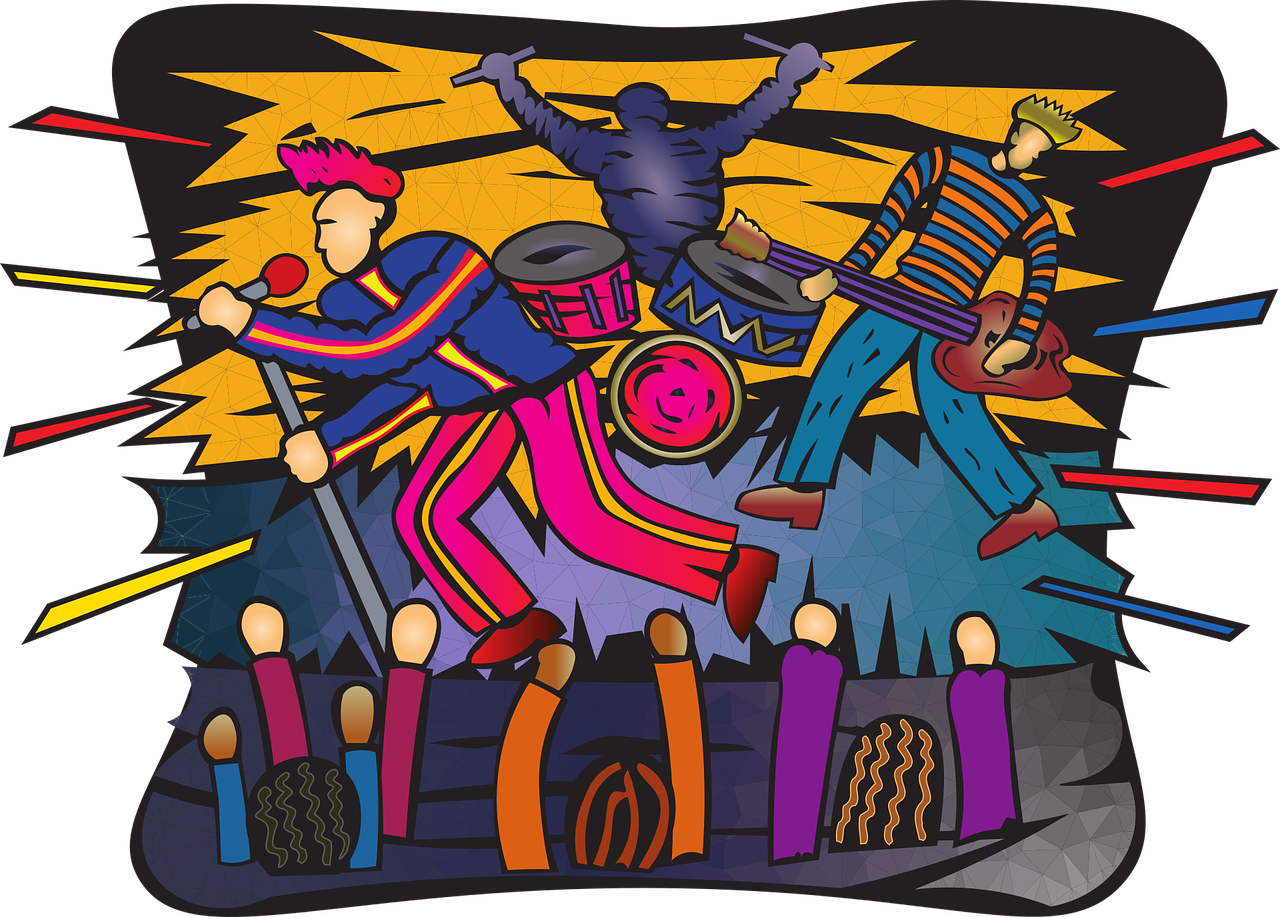How to Get Motivation with ADHD: Embracing a Different Approach with Effective Strategies
Understanding Motivation with ADHD: How Your Brain Works Differently According to Research
If you live with ADHD, you might already know that traditional ways of staying focused—like long-term planning or aiming for distant rewards—often don’t work. But this doesn’t mean you’re unmotivated. Instead, your brain is motivated uniquely.

Let’s explore how to get motivation with adhd.
How to get motivation with ADHD: Why You Need Different Strategies, Not a Different Brain
If you have ADHD, you’ve likely experienced the frustration of staying motivated using strategies that work for neurotypical people—prioritization, good habits, setting goals, routine-building, or breaking tasks into chunks, even the dreaded "accountability" word. One I particularly hate. When these methods fail, it’s easy to feel like you're not trying hard enough. But the reality is that your brain works differently, and it needs different approaches to motivation. These approaches need to consider your concentration and energy systems work differently.
Instead of forcing yourself to fit into neurotypical molds, you can create a life that works with your ADHD brain. The key is embracing your unique strengths—like interest, urgency, and creativity—rather than fighting against how your brain naturally functions.
Why Traditional Approaches Fail for ADHD
1. Long-Term Planning Falls Flat
ADHD brains often struggle with delayed rewards. Planning a task weeks or months in advance lacks the sense of urgency or immediate stimulation needed to stay engaged. What prioritization looks like for neurotypical people just isn't the same for ADHDers.
2. Routines Feel Boring
Following a predictable structure or routine daily can feel monotonous for someone with ADHD, draining motivation and making it harder to stick to tasks that don’t feel immediately exciting.
3. Breaking Tasks into Chunks Can Disrupt Flow
The advice to "break big tasks into smaller pieces" often backfires for ADHDers. Stopping and starting multiple times for breaks interrupts focus, making it harder to regain momentum and motivation.
4. ADHD and Dopamine Sensitivity
ADHD brains are more sensitive to dopamine, a neurotransmitter responsible for feelings of reward and satisfaction. Since traditional methods, like routine work or distant goals, don’t provide an immediate dopamine boost, your brain doesn’t register those activities as engaging. This is why many people with ADHD struggle with tasks that don't deliver quick feedback or rewards.
A Better Approach: Working with the ADHD Brain
Rather than using strategies designed for neurotypical brains, ADHDers need methods that harness the natural strengths of the ADHD brain—such as interest, novelty, and urgency. You also need people around who will provide support and encouragement as you try these new approaches.
A Real Example: Sarah’s Breakthrough with Deadlines, Stress, and Hyperfocus
Let’s take the example of Sarah, a woman I worked with who needed to write six in-depth articles for her job each year. At first, Sarah tried the traditional advice of planning well in advance. She set aside time weeks before the deadline to write the articles in small chunks. But no matter how hard she tried to stick to this plan, she always procrastinated until the weekend before the article was due. Then she’d spend the entire weekend in a mad dash to finish it.
Sarah felt guilty and thought her tendency to work at the last minute was a failure of discipline. But after we talked, she realized something important: this is how her brain works best. The pressure of a looming deadline activated her hyperfocus, allowing her to work intensely and produce her best writing.
Instead of trying to force a planning method that wasn’t working, we created a system that fit her natural workflow. Here’s what we did:
- Cleared Her Calendar: We blocked off the weekend before each deadline so Sarah would have no other commitments preventing her from hyper-focusing.
- Prepared for the Weekend Sprint: Sarah stocked up on snacks to keep in her office so she wouldn’t have to take frequent breaks and could stay in the writing flow.
- Communicated with Family: She alerted her family beforehand so they knew she’d be unavailable that weekend, eliminating distractions and interruptions.
- Planned for Recovery: Knowing that hyperfocus can be mentally exhausting, Sarah also blocked out half the day after the article was done to rest and recover.
- Support and encouragement: Sarah told her family why she was doing this, and they were on board.
The result? Sarah stopped beating herself up for writing her articles at the last minute because we had built a plan around her brain’s natural way of working. Now, she embraces this approach, knowing she’ll write best when fully immersed in her work.
How to Build a Motivation System That Works for Your ADHD Brain by Harnessing Dopamine
1. Interest-Driven Motivation: Focus on What Captivates You to Achieve Your Goals
The ADHD brain is driven by interest. When you're deeply engaged in a subject, you can enter a state of hyperfocus, where your productivity and concentration reach their peak. Routine or dull tasks don’t boost dopamine; functions that spark your curiosity do.
Action Step: Identify your passion and integrate those interests into your daily work. If your tasks are unavoidably mundane, pair them with something you enjoy—like listening to music or giving yourself small, fun rewards after completing them.
2. Leverage Novelty: Keep Things Fresh to Stimulate Dopamine
ADHD brains love novelty. Whether starting a new project, changing your environment, or tackling a fresh challenge, new experiences stimulate the brain. While neurotypicals may find comfort in repetition, those with ADHD often need novelty to stay motivated.
Action Step: Vary your work environment or approach. Change your workspace, try new tools, or vary your tasks to keep things exciting. The stimulation will help you maintain your focus.
3. Motivation from Urgency: Combat Procrastination by Using Deadlines to Focus
Like Sarah, many ADHDers thrive under urgency. A looming deadline can create the pressure your brain needs to lock in and hyperfocus. Last-minute sprints aren’t a sign of poor planning—they’re how your brain maximizes productivity when the stakes are high.
Action Step: Don’t unnecessarily fight your brain’s natural wiring by trying to spread out work. Set tight, realistic deadlines and block off time in your calendar close to the due date to allow yourself to work when your motivation is strongest.
4. Sensitivity to Dopamine: Set Up Quick Wins with a Reward System
ADHD brains need immediate gratification to feel engaged. Waiting for long-term rewards doesn’t stimulate your dopamine system like short-term feedback does. Tasks with quick, measurable outcomes are more likely to keep your attention.
Action Step: Break tasks into smaller, easily achievable steps so you can feel a sense of accomplishment more often. Reward yourself immediately after finishing each small milestone.
5. Prepare for Hyperfocus: Use It Wisely in Your Projects
Hyperfocus is one of the greatest strengths of the ADHD brain. When fully immersed in a task, your brain can reach an almost superhuman level of focus and productivity. However, if not managed carefully, hyperfocus can also lead to burnout.
Action Step: Set up your environment to minimize interruptions during periods of hyperfocus. Like Sarah, stock up on snacks, block out your calendar, and communicate with those around you about your work needs—also, plan time to rest and recover afterward.
6. Emotional Intensity: Channel Your Passion with Dopamine
ADHDers often experience intense emotions, which can be a powerful source of motivation. When you’re emotionally invested in a project, your brain naturally focuses on it, driving you to see it through.
Action Step: Identify tasks or projects that align with your values or passions. If the work itself isn’t exciting, try connecting it to a larger personal or professional goal that you care about.
7. Incorporate Movement: Boost Focus Through Exercise Activity
ADHD brains can struggle with sitting still, but movement often helps with focus. Physical activity can stimulate your brain, helping you engage with tasks more effectively.
Action Step: Incorporate movement into your daily routine—whether it’s standing while you work, taking walking breaks, or even fidgeting during tasks. Keeping your body engaged can help your brain stay focused.
Reflection: Embrace Your ADHD Brain with Effective Strategies
If you’ve struggled to fit into traditional motivation systems, it’s time to ask yourself whether these methods were ever meant for you. Just like Sarah, who discovered that her brain works best under pressure, you can embrace what motivates you. The goal isn’t to change how your brain works but to change how you work with your brain.
Ask yourself:
- When do I feel most focused and productive?
- What strategies have I been trying that don’t fit with how my brain works?
- How can I structure my life and work around my natural motivation patterns?
Takeaway Box: Key Strategies and Points to Remember about How to Get Motivated with ADHD
- ADHD brains are motivated differently. You don’t need to change your brain; you must change how you approach motivation.
- Use urgency, hyperfocus, and interest to your advantage. Don’t fight your brain’s natural tendencies.
- Break tasks into small wins to get quick dopamine boosts and keep momentum.
- Tailor routines to fit your strengths. Build flexible structures that allow for spontaneity, interest, and bursts of energy.
- Plan for recovery. After intense hyperfocus sessions, schedule downtime to rest and recharge.
Just like Sarah, you can stop fighting against your ADHD and start working with it. By embracing how your brain naturally operates, you’ll unlock strategies that work for you—sustainable, empowering, and built around your unique strengths.
Call to Action: Ready to start working with your ADHD brain? Begin by identifying your most productive times and rethinking your work structure. Take one step today to build a system that works for you, not against you!
Recent Posts: Latest Strategies for Managing ADHD
References for Strategies on How to Get Motivation with ADHD
- Cubillo, A., Halari, R., Smith, A., Taylor, E., & Rubia, K. (2012). A review of fronto-striatal and fronto-cortical brain abnormalities in children and adults with attention deficit hyperactivity disorder (ADHD) and new evidence for dysfunction in adults with ADHD during motivation and attention. Cortex, 48(2), 194-215. https://doi.org/10.1016/j.cortex.2011.04.007
- Gawrilow, C., Gollwitzer, P. M., & Oettingen, G. (2014). If-then plans benefit executive functions in children with ADHD. Journal of Social and Clinical Psychology, 30(4), 394-418. https://doi.org/10.1521/jscp.2011.30.4.394
- Volkow, N. D., Wang, G. J., Kollins, S. H., Wigal, T. L., Newcorn, J. H., Telang, F., ... & Swanson, J. M. (2009). Evaluating dopamine reward pathway in ADHD: clinical implications. JAMA, 302(10), 1084-1091. https://doi.org/10.1001/jama.2009.1308
- Volkow, N. D., Wang, G. J., Tomasi, D., & Baler, R. D. (2011). Unbalanced neuronal circuits in addiction and obesity: Opportunities for therapeutic interventions. Science, 334(6052), 928-932. https://doi.org/10.1126/science.



